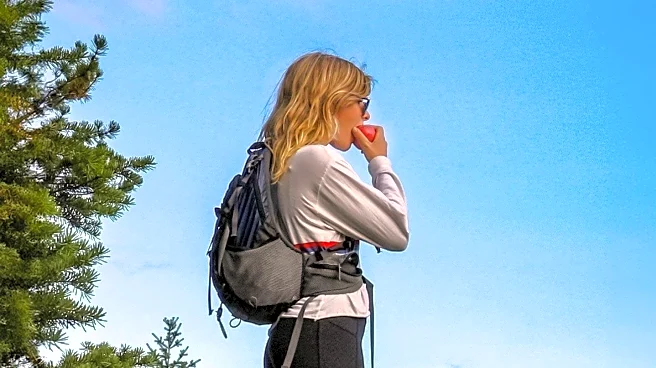What's Happening?
Peg Leg, a seasoned thru hiker, has embarked on an ambitious journey to complete the 'border to border' calendar year triple crown. This involves hiking from Key West, Florida to Canada, followed by the Pacific Crest Trail (PCT) and the Continental Divide Trail (CDT) within a single year. Peg Leg, who has already walked over 12,000 miles, aims to achieve this feat after previously completing the eastern continental trail and becoming the second woman in history to do so. Her journey is marked by a stay in a basic accommodation along the CDT, highlighting the challenges and minimal comforts faced by long-distance hikers.
Why It's Important?
Peg Leg's endeavor underscores the growing popularity and challenges of long-distance hiking in the U.S. Her journey not only highlights the physical and mental endurance required but also brings attention to the infrastructure supporting hikers on these trails. The completion of such trails can inspire others to explore the outdoors, promoting physical fitness and environmental awareness. Additionally, Peg Leg's achievements contribute to the representation of women in extreme sports, encouraging more female participation in hiking and outdoor activities.
What's Next?
As Peg Leg continues her journey, she will face various terrains and weather conditions, testing her resilience and adaptability. Her progress may inspire other hikers to attempt similar feats, potentially increasing interest in the triple crown challenge. The hiking community and trail organizations might respond by enhancing trail maintenance and support services for hikers. Peg Leg's journey could also lead to increased media coverage, further promoting the trails and the hiking lifestyle.
Beyond the Headlines
Peg Leg's journey may have broader implications for the hiking community, including discussions on trail conservation and the impact of increased foot traffic on natural environments. Her story could spark conversations about the accessibility of long-distance hiking for diverse groups, including women and minorities. Additionally, her experiences might influence the development of more inclusive and supportive hiking networks and resources.












